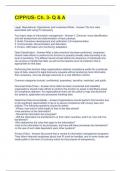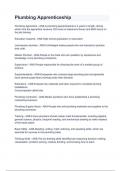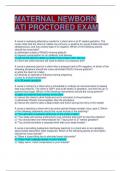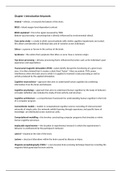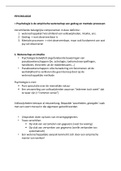Summary
Summary Grade 12 Acids and Bases
- Course
- Physical Sciences
- Institution
- 12th Grade
This is a summary of the important aspects of Acids and Bases in the Grade 12 syllabus: - Cover page - Acids - Bases - Concentrated vs Dilute - Conjugate acid-base pairs - Amphoteric Substances - The pH scale - Acid Reactions - Kw, Ka and Kb - Hydrolysis - Titration/Neutralisation - Co...
[Show more]







